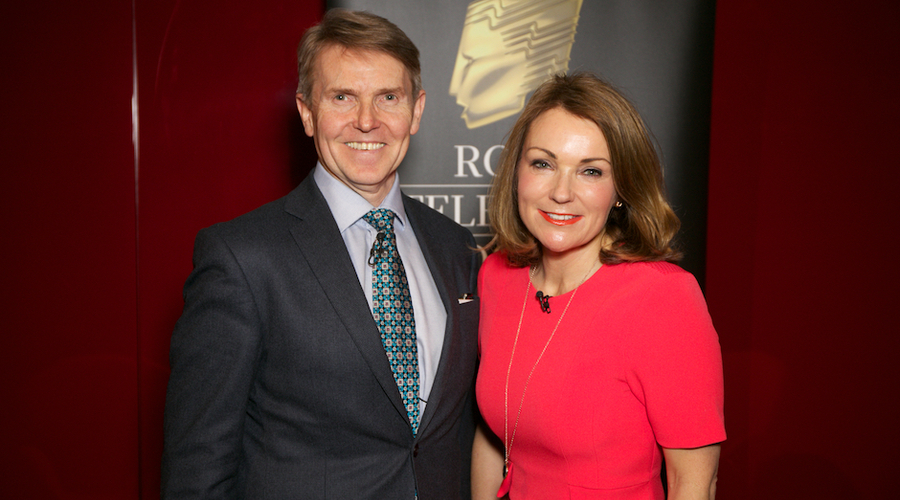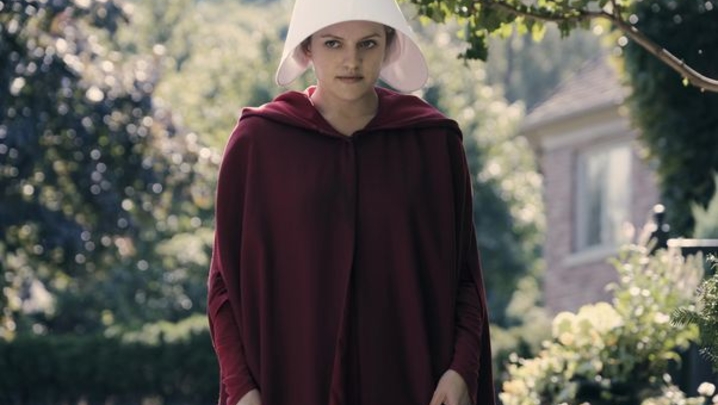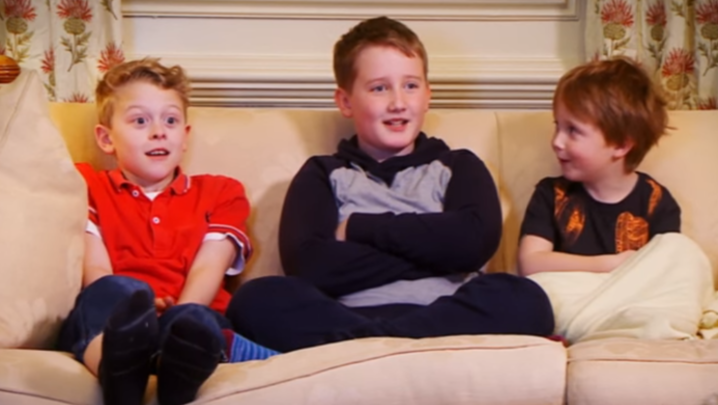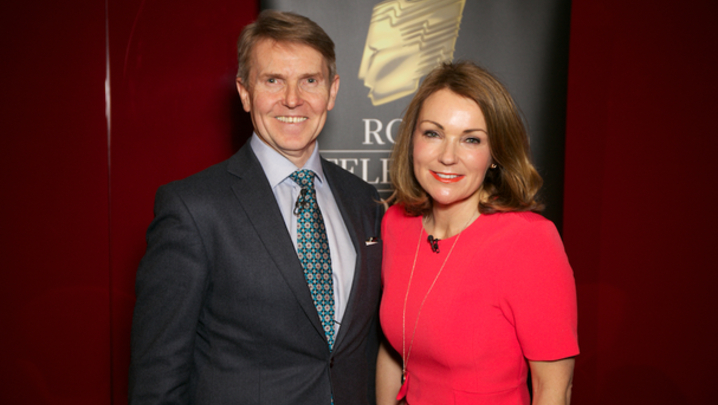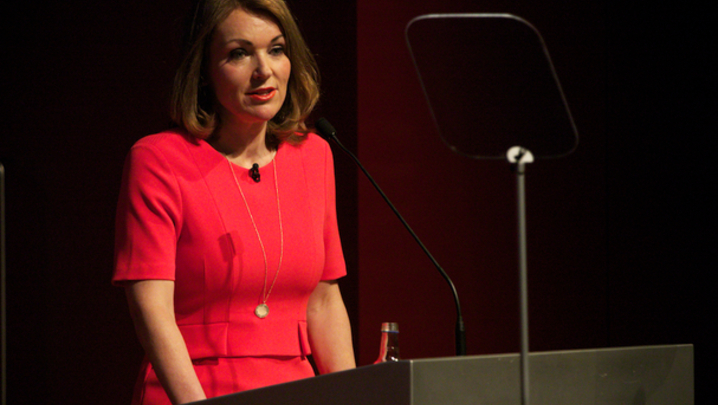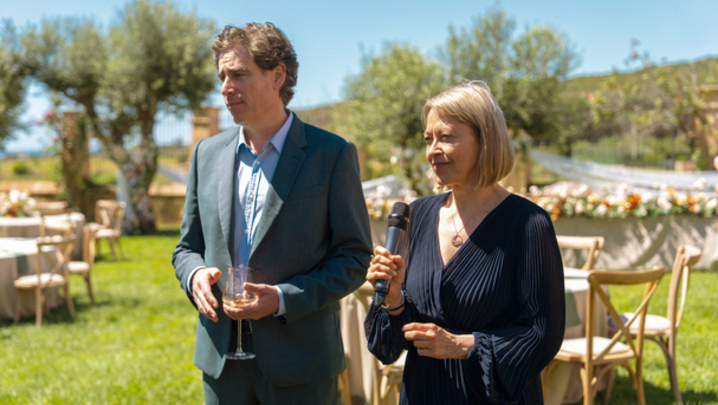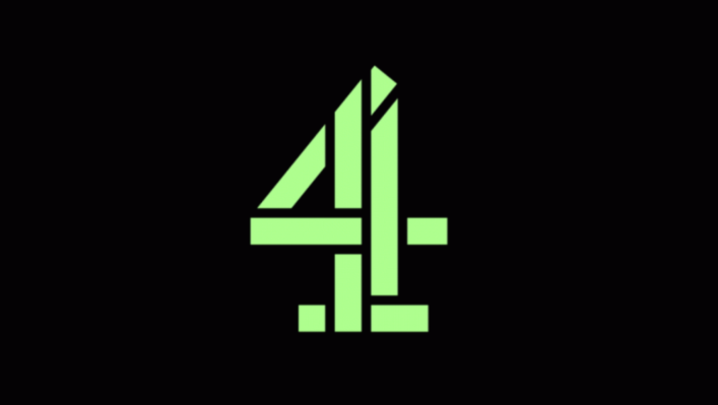After her speech to the RTS at The British Museum, Jay Hunt took questions from ITN's John Hardie. Channel 4's Chief Creative Officer talks about putting more power in the hands of indies, and what the station's digital movements are for the future.
You’ve described an environment at Channel 4 where commissioners shape the shows and even originate the ideas. Do independent producers share your view of this proactive process?
It is very instructive in a number of different ways. On one level it makes us very quick at saying no to things. We’re often talking about spending hundreds of thousands, sometimes millions of pounds on a show. If you are thinking of any other kind of investment and someone says to you ‘tell you what, you don’t need to get involved but 100 people who know quite a lot about this can give you some feedback, would that be helpful?’, in the main, my experience has been that it is quite helpful. Instead of being head in hands, deconstructing why a show didn’t work, we’re upstream of that helping to shape it so that together there’s a better chance of it working. It’s a pretty benign process and another set of brains trying to get something right.
You talked a lot about the candour inside Channel 4. Are you confident that this extends to the producers and they know exactly where they stand?
I think so. One of the things we’ve wrestled with a lot is how can producers be actively involved, how can we bring them into the meeting? A fundamental problem is around commercial sensitivity. For obvious reasons, I can’t have The Garden in there discussing an idea from Ricochet. It’s a forum where lots of different people are thinking if we can get this closer to being commissionable for Channel 4. If I could find a way of cracking that commercial sensitivity I’d be very happy to open the doors to everybody.
I think I’m right in saying that ITV has 17 commissioners, Channel 5 eight or nine, and Channel 4 has 56. According to the Annual Report you are dealing with 338 indies, but that’s almost enough people to act as executive producers. Is that how you think things should be?
No, definitely not, we’ve spent a lot of time talking about exactly that. One of the more depressing things I’ve seen happen recently is indies beginning to assume that will happen. That is not what Channel 4 is there to do. We’re not there to make or exec produce the shows; I’m pretty firm with people that that’s not what our function is. But are we part of a creative conversation? Yes.
We’re not a normal broadcaster. We’re required to have a perspective, to prompt debate, and to engage people in inspiring change. I don’t think any indies will tell you they can’t remember a time they walked into a broadcaster, put a piece of paper on the table and someone leant over and wrote a cheque. That’s exactly as it should be. It’s a dialogue, isn’t it?
How do you make something better by talking about it? And by getting the best brains you can on making it as robust as it can be before we get it out of the door. I don’t make any apology for the fact that we work in a different way.
What you’ve described tonight is a very personal vision of what Channel 4 should be. John Whittingdale said recently that Channel 4 had a somewhat “fuzzy” remit. Do you accept that Channel 4’s remit is so wide that it cannot be totally objectively verifiable? It is a little bit in the eye of the beholder?
If only. I think anyone who lived through our regular quarterly updates on the statement of media content policy measures will tell you it’s a pretty rigorous way of doing things. What I find interesting about this debate is some of these interventions are harking back to a 1950’s era of public service broadcasting – double history on a Tuesday night and double science on Thursdays.
I think we’re at our best when we subsume those public service constructs. Hunted is a show about young people caring about their digital footprint. The Island is about modern masculinity. Eden, which Liam [Humphreys, Head of Factual Entertainment] brings to air later this year, is about starting again as a society. These are big themes that we’re wrestling to the ground by applying the best creative brains we possibly can to get our audience to engage with them.
When we go back to thinking in quite a simplistic way about public service broadcasting, that’s a bit of a backward step. There is a place in this country which has been set up with a pretty unforgiving remit around creativity, innovation and risk taking. It is not something we might do but that is the best guard against cynical and pragmatic commissioning you can ever have. We are required to do that. I think that is rather extraordinary and very precious.
Turning to privatisation you mentioned Pixar in your speech, do you see any way in which working for the Yankee dollar night be good for Channel 4?
No. But do I think there are things we can learn from any number of sources about creative ways of working, without a shadow of a doubt. Pixar is iconic as a risk-taking producer in its particular space. Do I think that applies to the very complex model we have at Channel 4? No I don’t for the very simple reason I think we still have time to do the hardest thing in British broadcasting – trying to make programmes that resonate and which have social and cultural significance but that also deliver an audience. We don’t take a penny of public money. That’s a very different way of thinking about the world. Even at Pixar, that’s a commercial model, they’re not there to bring about change or represent diversity.
In the end the thing that matters most – I don’t think anyone at Channel 4 is ideological about the privatisation debate – is protecting the remit. I know what it feels like making decisions at Channel 5, and you make very different decisions.
In 2015 Channel 4 performed well – overall ratings were up one per cent, peak time up eight per cent – and the core channel does all the heavy lifting for the remit. Is that sustainable long term or will there come a point where the total portfolio has to carry the full weight of the remit?
I think what’s happened over the past five years is that we’ve transitioned into a period where we’ve got a strong line-up of shows on the main channel, good returning hits on the portfolio as well. The overall picture looks incredibly solid.
What are you views on gender equality in TV?
I think one of the great things about what Lenny [Henry] has done is, it’s not just raised the issue around BAME audiences - and off screen and on screen talent -, ... it has to be about gender as well, women need to continue to be supported to grow in this industry.
A few years ago we saw a huge flight of women from the sector in their 30s because they couldn’t find a way of managing child care and being a director or sitting in an edit until 11pm. We’ve got to keep pushing to ensure that particularly from that age up people don’t drop out because they can’t make it work.
No doubt for the next several years you will be committed to Channel 4 but at some point you will think about moving on. What would your ideal job be?
I honestly don’t think about it. Channel 4 gets under your skin in a pretty extraordinary way. You become religious about it. It matters to me massively, that it’s protected and that it continues to be able to do what it does...I am not avoiding your question, I genuinely don’t know what I’ll do next. But right now this matters to me more.
[At this point, questions were received from the floor.]
Regarding Channel 4’s digital direction, we’ve seen BBC3 move online and services like Netflix getting more attention, where is Channel 4 moving digitally?
Partly because of the way in which we seek to serve a young audience, us having a strong digital strategy is incredibly important. We’re spending a lot of time internally speaking about the evolution of All4 and how it can do companion pieces to E4, which continues to be a number one destination for young audiences. Some of that will be around originated content.
We’ve already demonstrated that we can migrate our audiences into a digital space. Now it’s about doubling down and investing more heavily there and making sure they stay within that wider Channel 4 stable. I also worry about Netflix getting bigger.
We’re still seeing huge numbers of young people going to the main channel – to E4 – and we are hoovering up a very substantial proportion of that viewing demographic.
With a lot of US co-production, do you see a decline in the autonomy of British programming or is there a convergence between US and UK producers?
I am incredibly excited about the money coming into co-production. Creatively, I want as much great drama and great comedy on TV as I can get. It is extremely expensive. I am seeing a world where Netflix is on the phone saying ‘I like your taste palette, can we have a piece of that action?’ Or we’ve got the big American studios coming in saying ‘Tell you what, can you be our originating partner? We want to make it for you first and we’ll sell it back into the States.’ It’s a total reversal of where we were five years ago.
The bit that fascinates me is that there is money there and an appetite for the sort of shows that Channel 4 loves and that British audiences love from Channel 4. Five years ago there were huge issues between here and America about language, casting, sexuality, violence. Most of those have evaporated. It feels like that global scripted community has got a lot of money to spend and wants to be in partnership with us. I’m hoping that will be part of the way we maintain our scripted budget at a record high.
You’ve shared your vision of the creative culture for the last five years, can you share a bit about the creative culture of the next five years and how you propose to grow the next generation of indies?
Our commitment, particularly to new indies, remains very very strong. A lot of the commissioners in the room tonight will bear me out on the fact that we are still actively trying to support as many new entrants as we possibly can. One of the real successes we’ve had in the last year is reaching out to the nations and regions, and making that meaningful for people outside London.
We’re just going to have to keep doing more of the same to make sure we don’t get sucked in to only buying from a very small band of people. Critically, we need those voices coming through to provide different perspectives and a better array of ideas to grow into new hits.
Read Jay Hunt's full speech here.

